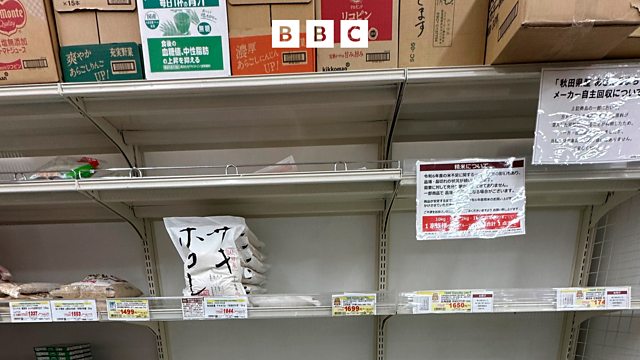What does Japan’s rice crisis say about its economy?
Japan has a rice shortage as extreme weather, policy legacies and panic buying drive up prices, raising concerns over food security, import dependence, and economic vulnerability
A domestic rice shortage in Japan has caused supermarket shelves to empty and prices to double. Rice is more than a staple food in Japan—it carries deep cultural, historical and even spiritual significance.
The rice crisis highlights broader weaknesses in Japan’s economy. Japan imports over half of its food and has experienced persistent inflation. The country’s economic resilience is being tested by supply chain pressures, demographic shifts, and increased trade tensions.
Efforts to address the shortage have focused on auctioning rice reserves, but underlying economic challenges persist.
Contributors:
• Yi-Chun Ko, Professor, Asian Growth Research Institute, Fukuoka, Japan
• Emiko Ohnuki-Tierney, William F. Vilas Research Professor, University of Wisconsin–Madison, US
• Stefan Angrick, Senior Economist, Moody’s Analytics, Tokyo, Japan
• Norihiro Yamaguchi, Lead Economist, Oxford Economics, Tokyo, Japan
Presenter: Charmaine Cozier
Producer: Louise Clarke
Researcher: Katie Morgan
Editor: Tara McDermott
Technical producer: Richard Hannaford
Production Management Assistant: Liam Morrey
On radio
More episodes
Next
Featured
-
.
Broadcasts
- Thursday 07:06GMTBBC World Service
- Thursday 14:06GMTBBC World Service
- Thursday 17:06GMTBBC World Service East and Southern Africa & West and Central Africa only
- Thursday 21:06GMTBBC World Service except East and Southern Africa & West and Central Africa
- Today 18:06GMTBBC World Service except East and Southern Africa & West and Central Africa
- Tomorrow 00:06GMTBBC World Service
- Tomorrow 11:06GMTBBC World Service East and Southern Africa & West and Central Africa only
Podcast
-
![]()
The Inquiry
Getting beyond the headlines to explore the forces and ideas shaping the world


